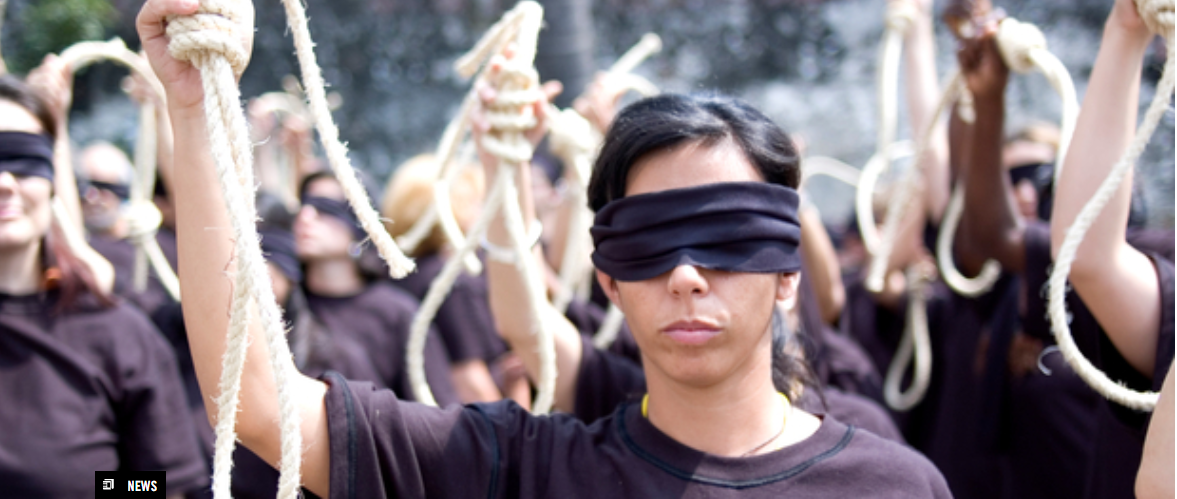Following Saudi Arabia’s announcement that it plans to end the use of the death penalty against people below the age of 18 at the time of the crime in cases not involving the counter-terror law, Amnesty International has called on the country to totally abolish the death penalty.
“While this represents a significant step for Saudi Arabia if implemented, the country’s continued use of the death penalty reached a shocking high last year with 184 recorded executions,” said Heba Morayef, Amnesty International’s Middle East and North Africa Regional Director.
“The death penalty is the ultimate cruel, inhuman and degrading punishment; no country should still be using it and Saudi Arabia’s record is particularly bad in this respect. Saudi Arabia must now establish an official moratorium on executions as a first step towards abolishing the death penalty completely.
“It should also not be forgotten that dozens of peaceful human rights activists remain detained following convictions in grossly unfair trials solely for campaigning for equality and justice in a vastly repressive environment.”
The Saudi Arabian authorities yesterday announced that the country will no longer use the death penalty against people below the age of 18 at the time of the crime. The death penalty will be replaced with a maximum punishment of 10 years in prison.
According to information obtained by Amnesty International, the Royal Decree excludes crimes under the counter-terror law. It is unclear what juvenile offenders would instead be sentenced to if tried under this law. Amnesty International has documented the Saudi Arabian authorities’ misuse of the counter-terror law, which has overly broad and vague definitions of “terrorism” and of a “terrorist crime,” and contains a number of provisions which criminalize peaceful expression of views.
Saudi Arabia has for years flouted international law prohibiting the use of the death penalty against people below the age of 18 at the time of the crime. Amnesty International has long campaigned for the quashing of the death sentences of Ali al-Nimr, Abdullah al-Zaher and Dawood al-Marhoon – three young men from Saudi Arabia’s Shi’a minority who were all arrested while under the age of 18 and are at imminent risk of execution following grossly unfair trials before the Specialized Criminal Court.
The authorities have yet to publish the Royal Decree containing the announcement publicly, and its implementing regulations remain unclear. To Amnesty International’s knowledge, families of those sentenced to death have not yet received any information about cases of their loved ones.
Last week, Saudi Arabia’s Supreme Court issued a directive for courts to end discretionary flogging punishments, and instead, replace them with jail time and/or fines. It is still unclear whether this applies to mandatory flogging punishments for other offences under Shari’a, including for alcohol use and sexual offences.
Law on Juveniles
Recent announcement follows the Law on Juveniles, issued in 2018, which prevented judges from imposing discretionary death sentences on those under 15 years old. It did not stop them from using the death penalty in cases of those who are convicted of hadd crimes (those with fixed and severe punishments under Shari’a) or crimes punishable by qisas (retaliation), a category of crimes under Shari’a in which murder and bodily harm are punishable by the same harm, such as the death penalty for murder and infliction of the same injury for bodily harm. The law therefore fell short Saudi Arabia’s obligations under the Convention on the Rights of the Child.
The announcement, which is a step forward from the Law on Juveniles, must be followed by clearly implementing regulations which do not exclude any minors from the reform.
Background
In its annual Death Penalty report, Amnesty International revealed that Saudi Arabia executed a record number of people in 2019, despite an overall decline in executions worldwide. The Saudi authorities put 184 people to death last year, the highest number recorded using Amnesty International’s research logs citing Ministry of Interior figures since 2000.
For more information or to arrange an interview, please contact:
Lucy Scholey, Media Relations, Amnesty International Canada (English branch), 613-853-2142, lscholey@amnesty.ca






















